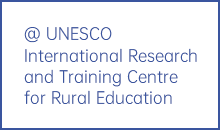This synthesis report undertakes the stock of China’s progress towards achieving the Six Education for All (EFA) goals in Chengdu City, and economically impoverished western provinces of Gansu, Guizhou, Henan and Yunnan. The report contains four chapters. Chapter 1 presents the socio-economic background of the Chengdu City and the four western provinces. Chapters 2 -3 explain and analyse how achievements were made; identify the shortfalls, remaining challenges and prospects. Chapter 4 concludes the experiences of China as well as those of the four western provinces and Chengdu City in setting policies and implementing strategies of particular interest to the education and development field nationally and provincially and suggests some policy directions for post-2015 era.
While China’s policy setting and implementation mechanisms are remarkably unique in many ways, the contextual examination of the process in the report brings to light many lessons learnt for its own reflection as well as for interested readers in China and other countries. The former is increasingly pertinent as China’s EFA successes are accompanied by still lingering gaps and needs, many of which involve access to and quality of education for disadvantaged population groups and for rural areas.
China is very close to achieving EFA quantitative targets but the major challenges are inequality, quality and inclusive education. All of these have not come along the way as revealed by the City and Provincial EFA review reports.
While orchestrating the EFA Policy Agenda beyond 2015, China must look beyond counting numbers. Getting children to school alone is not sufficient. What is required is to know and learn: What do we do in the school? What should be our focus on the phenomenon of “silent exclusion”? How we can harmonise the national and the provincial EFA initiatives with the changing demands and expectations of the globalised knowledge society? Mere expansion of the system will not serve the purpose. In the process of developing EFA agenda beyond 2015, China will have to pursue a “Transformative Goal” rather than mere quantitative expansion of the system.
The new development agenda must be based on the people’s needs, experiences and aspirations, and informed by the achievements and failures of the past decades. The priorities must be formulated in dialogue with civil society and trade unions, giving an opportunity to education unions to share their experiences and expertise, and shape the education agenda.
That effort requires three primary components. First, Chinese educators and policy makers must ensure that the instructional programme is complete and that the content is not short-changed for an ephemeral pursuit of skills. Second, provinces, cities, municipalities, counties, school districts, and schools need to revamp how they think about human capital in education- in particular how teachers are trained. Finally, China needs new assessments that can accurately measure richer learning and more complex tasks.
The report reiterates that the post-2015 education agenda of China should not focus on counting the numbers. It should be aspirational, transformative and holistic, and an integral part of the broader post- 2015 development agenda. It should be of universal relevance and mobilize all stakeholders, particularly the private sector.
The future agenda should be rights-based and reflect a perspective based on equity and inclusion, with particular attention to gender equality and to overcoming all forms of discrimination in and through education, ensuring that no one is left behind. It must support free and compulsory basic education.
It should expand the vision of access for all to reflect relevant learning outcomes through the provision of quality education at all levels in safe and healthy environments. It should take a holistic and lifelong learning approach, and provide multiple pathways of learning by integrating all key reforms in curriculum, teacher expertise and students’ learning assessment using innovative methods and information and communication technologies. Efforts to create more formalized common standards would help address some of the challenges by focusing efforts in a common direction. But common standards will not, by themselves, be enough.
The future EFA agenda should provide a common approach to monitoring national goals, while offering the flexibility to respond to aspirations of Chinese people. Therefore, in addition to national benchmarks and indicators, the agenda will also include provisions for target setting and indicator development at the provincial level that reflect specific priorities and contexts.
The report concludes and asserts that the past few decades have seen great progress in education reform in the People’s Republic of China-progress that has especially benefited students in these four western provinces and Chengdu City. Today's reformers and educators of China can build on that progress only if they pay keen attention to the challenges associated with genuinely improving teaching and learning. If the Chinese policy makers and leaders ignore these challenges, the 21st century skills movement risks becoming another fad that will ultimately change little- or even worse, will set back the cause of creating dramatically more powerful schools for Chinese, especially those who are underserved today.
Drawing inspiration from China’s achievements and lessons learnt in EFA, innovative and well-managed use of ICT for learning can herald the transition of Education for All into a brand new era of Learning for All, when all Chinese can truly learn anything at any time and in any place.
- Download:
- Provincial EFA Review of China 2015.pdf













